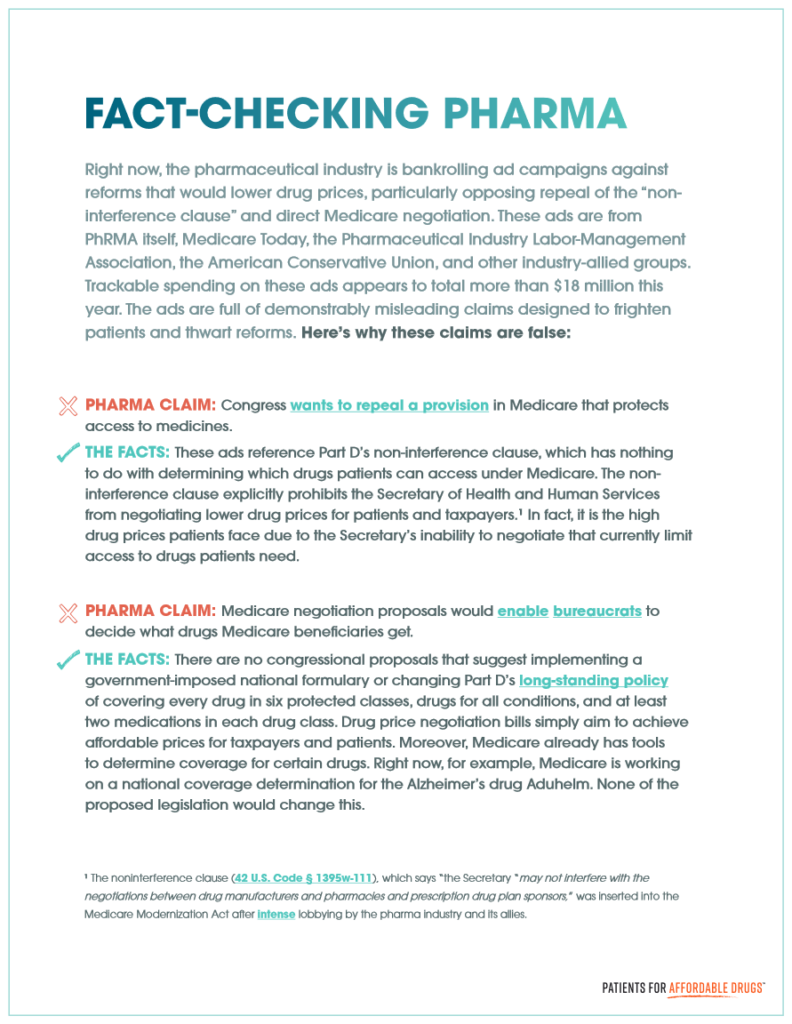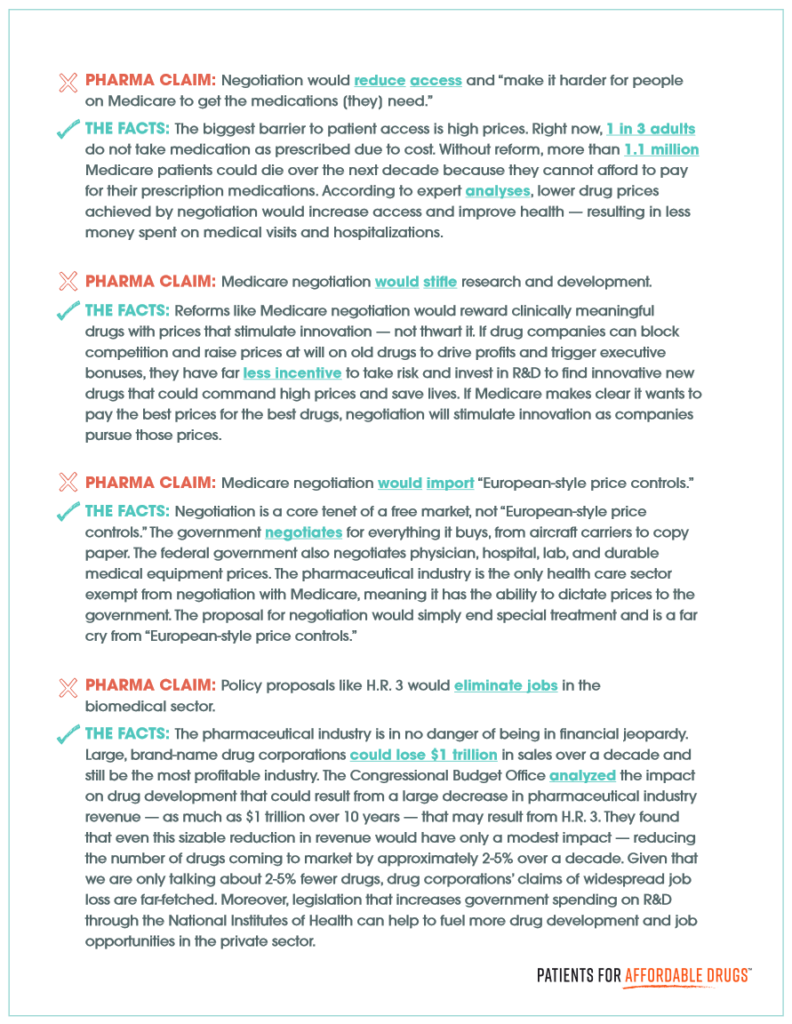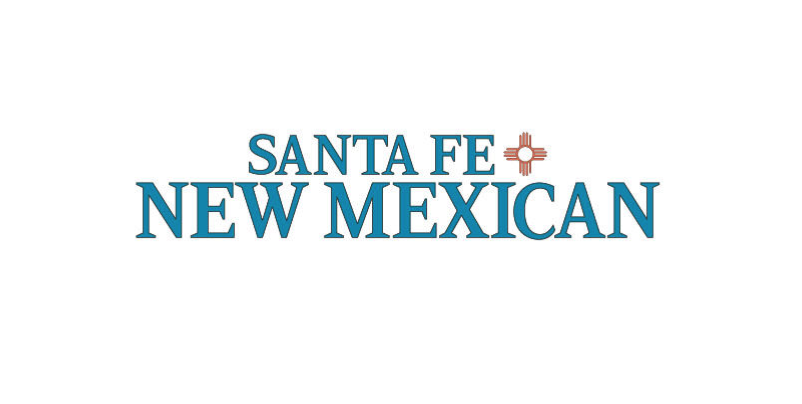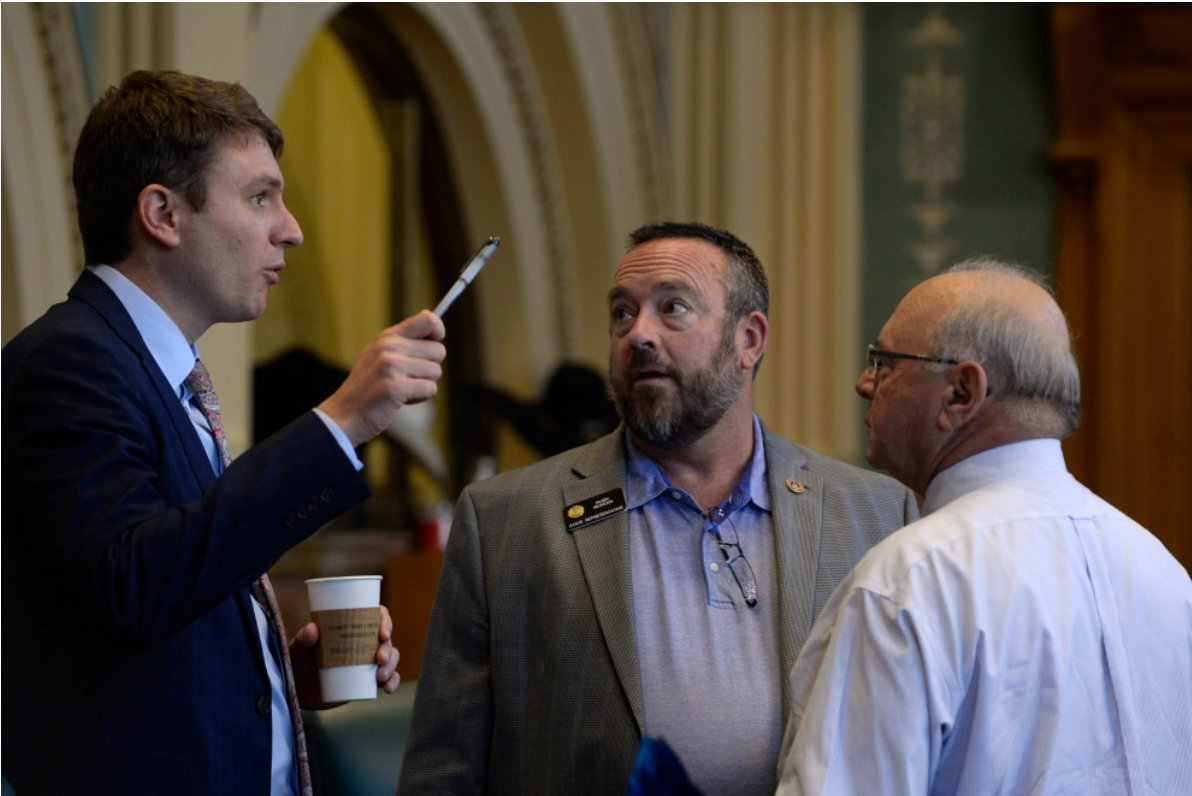by Protect Our Care
For 20 years, drug companies have benefited from a law that bans Medicare from negotiating lower prices for patients. As a result, Americans now pay three times more for the same drugs as people do in other countries. Democrats in Congress want to give Medicare the power to negotiate lower prices for all Americans, including people on Medicare and people with private insurance. The Congressional Budget Office found that these reforms could save patients as much as 55 percent on the price of their prescription drugs.
So, like clockwork, Big Pharma has started launching misleading ad campaigns. Almost all of them are channeled through groups with patient friendly names that have one thing in common: drug industry money or connections.
This new report details how the many major ad campaigns currently running against prescription drug price reform are actually backed by pharmaceutical industry funds. The ads are paid for by the same people who profit by keeping the prices artificially high and protecting their monopoly while millions of American families cannot afford life saving medicines.
“From this report, everyone can find out the truth about who’s behind these ad campaigns – and it’s the same drug companies that want to keep prices high and profits skyrocketing,” said Protect Our Care Executive Director Brad Woodhouse. “Members of Congress can either vote with these drug companies or vote for reforms that lower the price of drugs for patients.
Lives are on the line.”
REVEALED: 8 PHARMA FUNDED AD CAMPAIGNS
As of right now, there are at least eight pharma-backed ad campaigns on the airwaves trying to scare Members of Congress with threats against patients.
American Action Network (AAN)
American Action Network Is Funneling Millions Into Misinformation Campaigns. AAN is currently running a $5 million advertising campaign, claiming the recent budget resolution is “a socialist prescription drug plan that would limit patients’ access to lifesaving medications.” In reality, the resolution would allow Medicare to negotiate fair prescription drug prices, something 88 percent of Americans strongly support. When H.R. 3 was first introduced in 2019, AAN received $4.5 million from PhRMA, the largest contribution made by the trade group that year. AAN then proceeded to run ads opposing H.R. 3 and Medicare drug price negotiation.
American Action Network Has Received Millions From A Pharmaceutical Trade Group. AAN has a long history of accepting funds from the pharmaceutical industry. A year after the group’s formation, AAN took $4.5 million from PhRMA. This trend has continued, with AAN receiving nearly $15 million from PhRMA between 2016 and 2019.
Medicare Today
Medicare Today Is Not Telling The Whole Story. Medicare Today launched an advertising campaign, claiming that 92 percent of seniors are “satisfied” with Medicare. What Medicare Today failed to mention is while seniors support the program, they are also strongly in favor of improving Medicare and lowering drug costs. The majority of seniors support allowing the government to negotiate prescription drug prices (82 percent), placing a limit on out-of-pocket drug costs (68 percent), and lowering the amount Medicare pays for drugs based on amounts in other countries (60 percent).
Medicare Today Was Launched By Big Pharma Executives. Medicare Today was launched in 2004 by the Healthcare Leadership Council, a coalition of health care executives, which includes the pharmaceutical industry. Healthcare Leadership Council includes the drugmakers: Amgen, Biogen, Bristol-Myers Squibb, Johnson & Johnson, Merck, and Pfizer.
Partnership to Fight Chronic Disease
Partnership To Fight Chronic Disease Is Using Big Pharma’s Tired Scare Tactics. The Partnership To Fight Chronic Disease is running a new advertising campaign claiming drug price negotiation will stifle innovation and reduce patient access to lifesaving drugs. The CBO analyzed the impact of a decrease in pharmaceutical revenue by as much as $1 trillion and found that it would only have a modest impact on drugs coming to market (impacting approximately eight of the 300 new drugs expected in the next decade). Only 10 percent of drugs that have entered the market over the last 50 years have represented therapeutic advances, with drugmakers making deliberate choices not to invest in research and development, and instead focusing resources on obtaining patents on old drugs, in order to “extend patent protection, prolong monopoly pricing periods, and keep generic competitors off the market.”
Partnership To Fight Chronic Disease Is Funded By Big Pharma. It is no wonder why the Partnership To Fight Chronic Disease is working so hard to protect the bottom line ofdrugmakers — they are an affiliate of Pharmaceutical Research & Manufacturers of America, which represents biopharmaceutical corporations.
Pharmaceutical Industry Labor-Management Association (PILMA)
PILMA Is Making False Claims That Medicare Price Negotiation Will Damage Innovation. PILMA is running a new advertising campaign, claiming the provisions in H.R. 3 would harm innovation and make it harder for patients to access their medications. This is simply not true
and fails to recognize that under our current system, nearly one in three Americans report not taking a medication as prescribed due to cost. A 2017 report from the National Academies of Medicine found, “drugs that are not affordable are of little value.”
PILMA Cannot Be Trusted With Drug Pricing Reform. PILMA is a coalition of biopharmaceutical companies and labor unions. Americans recognize that Big Pharma is putting profits over people, with 80 percent of Americans reporting the pharmaceutical industry’s profits as a “major factor” for the high cost of prescription drugs.
Heritage Foundation
Prescription Drug Affordability And Innovation Are Not Mutually Exclusive. Heritage Foundation launched a new $860,000 ad campaign, claiming drug price negotiation would push prescription medications out of reach for patients. Deciding between lowering drug prices and ensuring innovation is a false choice. A 2021 report from West Health found that pharmaceutical companies can easily alleviate the impacts of drug price reductions without reducing budgets for research and development. “Price reductions anticipated from [H.R. 3], if properly managed, could have minimal impact on pharmaceutical innovation and the emergence of new products.”
Heritage Foundation Has Been Benefiting From Big Pharma’s Greed. While running shameless scare campaigns, Heritage Foundation has been accepting money hand over fist from drugmakers and their trade groups. In 2019 alone, PhRMA gave a minimum of $375,000 to Heritage Foundation and Heritage Action. Heritage Foundation also has a long history of receiving funds from Big Pharma, including Johnson & Johnson, GlaxoSmithKline, Novartis, Bristol-Myers Squibb, and Pfizer.
60 Plus Association
60 Plus Association Is Fighting Medicare Price Negotiation. The CBO found Medicare drug negotiation would save patients more than $150 billion at the pharmacy counter, yet 60 Plus Association is running an advertising campaign, attempting to sell Medicare negotiation as a ‘scam’. In reality, it is 60 Plus that has been deceiving the public. In 2016, the Koch Brother affiliated organization was fined by the Federal Election Commission after violating federal rules requiring they identify the source of funds earmarked for political expenditures. 60 Plus, along with two other Koch affiliated groups, consented to pay a total of more than $200,000. The New York Times referred to the investigation as “a look…into the interlocking networks of political nonprofits on the right, through which vast sums of money flow each election cycle with little disclosure.”
60 Plus Association Has Received Millions From The Drug Industry. It is clear who has been holding the reins at 60 Plus. In 2002, 91 percent of its $12 million revenue came from a single donor, which Public Citizen presumes to be PhRMA. 60 Plus has also received money from drugmakers like Pfizer, Merck, and Wyeth-Ayerst.
One Nation
One Nation Is Burying the Lede. One Nation is running a new advertising campaign claiming “good health care is hard enough to get” and that Medicare drug price negotiation would restrict access to lifesaving drugs. What One Nation fails to mention is one of the leading limitations to health care access is the soaring cost of prescription drugs. 29 percent of Americans taking prescription drugs have reported not filling, halving, or skipping a needed prescription due to cost in the past year.
A Big Pharma Lobbyist Sits On One Nation’s Board. One Nation added Ken Cole, former lobbyist for Pfizer and Chamber of Commerce board member, to their board in 2019. Pfizer and the Chamber of Commerce have spent a collective $1 billion on lobbying over the last decade, including on efforts to kill legislation aimed at lowering the cost of prescription drug prices.
Pharmaceutical Research and Manufacturers of America (PhRMA)
PhRMA Is Attempting To Mislead The American People. PhRMA is out with a new advertising campaign intended to make Americans fear Medicare drug price negotiation. The ad made such outrageous claims about restricting patients access to needed medications, the Washington Post gave it a ‘Three Pinachios’ rating and said the ad was PhRMA’s attempt to claim “there are provisions in the legislation that do not exist.” In 2021, a CBO working paper estimated that if Medicare was empowered to negotiate drug prices, they would “fall between 57 percent and 75 percent, relative to current prices.”
PhRMA Cannot Be Trusted With Drug Pricing Reform. PhRMA represents the nation’s leading biopharmaceutical companies. Americans see through the fear tactics used by pharma industry trade groups, with 75 percent of Americans reporting they do not trust the industry to fairly price prescription drugs.
